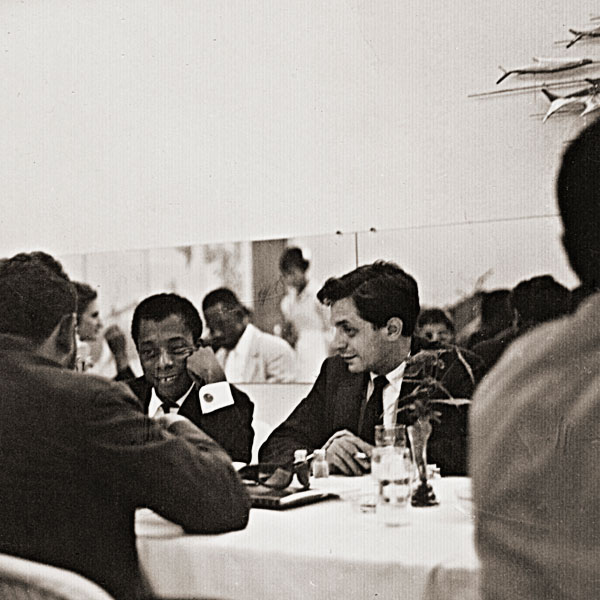I started this blog in 2004 to write about things like this photo of my father and James Baldwin in Birmingham, AL in 1963 at the height of the Civil Rights Movement.

James Baldwin and my father, Paul Greenberg, at the AG Gaston Motel, Birmingham, Alabama, August 4, 1963. (Photo credit: Robert Adamenko)
In time, however, blogging led to investigative journalism about unpunished lynchings and other violence from the civil rights era.
In the summer of 2007, I returned to Mississippi to look into violence that had taken place near Woodville in the southwest part of the state. After I interviewed an NAACP official, a black woman in her early 70's who owned a shop in the town center stopped me on the street. "You a reporter?" she asked. Before long, she and her husband were sharing stories of violence against blacks in Woodville in the '50's and '60's. They asked if I had ever heard of Man Walker whose given first name was Clifford or Clifton. He was shot in his car on Poor House Road and they thought his children lived nearby in Louisiana.
Since I was on my way to Hattiesburg to do research in the McCain Archives at the University of Southern Mississippi, I couldn't stick around to learn more. Yet at the archives, I found a number of Mississippi Highway and Safety Patrol reports on the Clifton Walker case. The reports were riveting. I had to investigate.
I've located a number of Walker's family members and have been working closely with three of his children since 2008. One daughter, Catherine, has joined me in questioning those with possible involvement in her father's murder. On one occasion there was a surprising moment of reconciliation between Catherine and a member of a white Woodville family. Walker's murder had allegedly been planned at this family's truck stop, and at the end of the interview with the elderly business owner and his daughter, Walker and the other daughter hugged. Catherine had not expected to meet whites from Woodville willing to talk about the murder. This small but significant step toward the closure that she and her siblings need gave us a taste of what might be possible for her family and for this small backwoods Mississippi community that is still largely committed to silence and to protecting murderers.
I tell this story in the Fall 2011 issue of Nieman Reports, which is devoted to cold case reporting. The issue also includes stories by my colleagues from the Civil Rights Cold Case Project:
- David Ridgen, It Takes a Hard-Driving Team to Uncover the Truth of a Cold Case, The Bonds of Our Reporting: The Civil Rights Cold Case Project
- John Flemming, Compelled to Remember What Others Want to Forget
- Jerry Mitchell, The Case of the Supposedly Sealed Files—And What They Revealed
- Stanley Nelson, Who Killed Frank Morris?
- Hank Klibanoff, Here’s What People Want to Know: Why Do Journalists Tell These Stories?
- Robert J. Rosenthal, The Enduring Ambition of the Civil Rights Cold Case Project
- Paul C. Johnson and Janice L. McDonald, When Lawyers and Journalists Share Common Cause
The issue also includes stories by Simeon Booker, Bill Minor and Jan Gardner.








Dear Sir,
Thank you for sharing your great story about your dad and his involvement in the civil rights movement. He was very brave! It has inspired me to investigate more of my own father’s past.
What started me down this path that found your blog was an audio recording of Mr. Joey Adams paying tribute to my father. Mr. Adams mentioned that my father was part of the group flown in from New York. It was a surprise to me because my father never mentioned it .
Dear sir, does a complete list exist of the performers that travelled to and performed at the Birmingham Salute to Freedom ’63? If so, would you share that resource with me? Thank you!